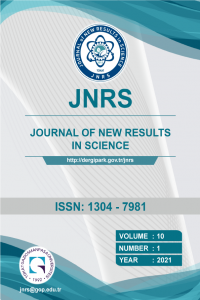An Encrypted Messaging Application with Multi Fragmented Caesar Encryption Method between Mobile Devices
Mobile devices, especially smart phones are widely used today. Users may benefit from the important services like banking, shopping and messaging, through these devices in mobile environments. This widespread use requires the adoption of various measures to ensure the security of personal information. In this study, a mobile application that allows mobile messaging environment to the people communicating via encrypted messaging was developed. In the application, Multi Fragmented Caesar Encryption algorithm was used. The application was developed for Android devices. This application ensures the information security while two users can message each other securely through a shared encryption key.
Keywords:
Mobile devices, multi fragmented caesar encryption algorithm android, ınformation security,
___
- Akleylek, S., Yıldırım, H. M., Tok, Z. Y., 2011. Cryptology and Its Applications: Public Key Infrastructure and Certified Electronic Mail. Akademik Bilişim, İnönü University, Malatya, 713-718.
- Altuğ, M., 2012. An Encrypted Messaging Application for Mobile Phones with Polybius Algorithm. (Master Thesis), Gazi University, Bilişim Enstitüsü, Department of Electronic and Computer Systems Education, Ankara.
- Anonymous, 2014a. Telegram. https://telegram.org Access Date: 23.06.2015
- Anonymous, 2014b. TextSecure Private Messenger. https://play.google.com/store/apps/details?id=org.thoughtcrime. securesms&hl=tr Access Date: 02.06.2015
- Anonymous, 2015a. Android Studio IDE. https://developer.android.com/sdk/index.html Access Date: 21.05.2015
- Anonymous, 2015b. Kriptoloji, http://tr.wikipedia.org/wiki/Kriptoloji Access Date: 10.06.2015
- Anonymous, 2015c. Java Official Web Site. https://www.java.com/tr/ Access Date: 21.05.2015
- Anonymous, 2015d. SQLite Android Bindings Documentation.https://www.sqlite.org/android/doc/trunk/www/index.wiki Access Date: 21.05.2015
- Anonymous, 2015e. Tübitak Bilgem Ulusal Bilgi Güvenliği Kapısı. "BGYS- 0001 Bilgi Güvenliği Yönetim Sistemi Kurulum Kılavuzu". http://www.bilgiguvenligi.gov.tr/bilgi-guvenligi-yonetimi-dokumanlari/uekae-bgys-0001-bilgi-guvenligi-yonetim-sistemi-kurulum-kilavuzu.html Access Date: 12.06.2015
- Aydoğan Y., 2014. Multi Fragmented Caesar Cipher Method and Its Applications. (Master Thesis), Gaziosmanpaşa Üniversity, Institute of Sciences, Department of Mathematics, Tokat.
- Canbek, G., Sağıroğlu, Ş., 2006. A Review on Information, Information Security and Security Processes. Journal of Polytechnic, 9(3), 165-174.
- Canbek, G., Sağıroğlu, Ş., 2007. Attacks Against Computer Systems and Their Types: A Review Study. Erciyes University Journal Of Institue of Science, 23(1-2), 1-12.
- Coşkun, A., Ülker, Ü., 2013. Development of A Cryptographic Algorithm for National Information Security and Determination of Confidence Against Letter Frequency Analysis. International Journal of Informatics Technologies, 6(2), 31-39.
- Çinar, M.S., Çinar, I., Bilge, H.Ş., 2013. Secure Email Application Using an Original Encryption Algorithm. 6th International Information Security & Cryptology Conference, pp. 332-337, 2013.
- Güven, B., 2013. Development of Cryptographic Document Management Systems Devoted to Non- Documentation of Work Procedures for Universities. (Master Thesis), Karabük Üniversity, Institute of Sciences, Department of Computer Engineering, Karabük.
- Nabiyev, V., 2010. Yapay Zekâ. 3. baskı, Ankara.
- Jones, A., 2005. Information Warfare-what has been happening? Computer Fraud&Security.
- Okumuş, İ., 2012. The Factors Affecting Speed of the RSA Cryptosystem. (PhD Thesis), Atatürk University, Institute of Sciences, Department of Mathematics, Erzurum.
- Sağıroğlu, Ş., Alkan, M., 2005. Bilgi Güvenliği Bilimi (Kriptoloji), Her Yönüyle Elektronik İmza. Grafiker Yayınları, Ankara, 21-50.
- Soyalıç, S., 2005. Cryptographic Hash Functions and Its Applications. (Master Thesis), Erciyes Üniversity, Institute of Sciences, Department of Mathematics, Kayseri.
- Yılmaz, R., 2010. Some Statistical Tests for Cryptographic Applications. (Master Thesis), Selçuk University, Institute of Sciences, Department of Statistics, Konya.
- Yılmaz, T., 2004. The Solutions of Security Problems for Smart Cards. (Master Thesis), Selçuk University, Institute of Sciences, Department of Computer Systems Education, Konya.
- ISSN: 1304-7981
- Yayın Aralığı: 3
- Başlangıç: 2012
- Yayıncı: TOKAT GAZİOSMANPAŞA ÜNİVERSİTESİ
